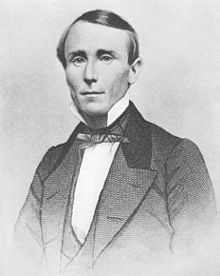Filibuster (military)

A filibuster, or freebooter, is someone who engages in an unauthorized military expedition into a foreign country to foment or support a revolution. The term is usually used to describe United States citizens who attempted to foment insurrections in Latin America in the mid-19th century.
Filibusters were irregular soldiers who acted without authority from their own government, and were usually motivated by financial gain, political ideology, or the thrill of adventure. The freewheeling actions of the filibusters led to the name being applied figuratively to the political act of filibustering in the U.S. Senate.[citation needed] "Freebooter" is the more familiar term in British English, in which "filibuster" normally only refers to the legislative tactic.
History
The term came into English from the Spanish filibustero (meaning pirate or buccaneer, and ultimately coming from the Dutch vrijbuiter (freebooter) and was first applied to persons raiding Spanish colonies and ships in the West Indies, the most famous of whom was Sir Francis Drake with his 1573 raid on Nombre de Dios. With the end of the era of Caribbean piracy in the early 18th century the term fell out of general currency.
Several Americans were involved in freelance military schemes such as William Blount (West Florida), Augustus W. Magee (Texas), George Mathews (East Florida), George Rogers Clark (Louisiana and Mississippi), William S. Smith (Venezuela), Ira Allen (Canada), William Walker, (Mexico and Nicaragua), and James Long (Texas).[1] Gregor MacGregor was a Scottish filibuster in Florida, Central and South America.
The term filibuster was revived in the mid 19th century to describe the actions of adventurers who tried to take control of various Caribbean, Mexican, and Central-American territories by force of arms. In Sonora there were the French Marquis Charles de Pindray and Count Gaston de Raousset-Boulbon and the Americans Joseph C. Morehead and Henry Alexander Crabb. The three most prominent filibusters of that era were Narciso López and John Quitman in Cuba and William Walker in Baja California, Sonora, and lastly Nicaragua. The term first returned to American parlance when used to refer to the Cuban expeditions of Narciso Lopez in 1851.[2][1]
Although the American public often enjoyed reading about the thrilling adventures of filibusters, American citizens involved in filibustering expeditions were usually in violation of the Neutrality Act of 1794 that made it illegal for an American to wage war against another country at peace with the United States. For example, the journalist John L. O'Sullivan, who coined the related phrase "Manifest Destiny", was put on trial for raising money for Lopez's failed filibustering expedition in Cuba.
In the 1850s, William Walker attempted a filibustering campaign with a strategy involving his leading a private mercenary army. In 1853, he successfully established a short lived republic in the Mexican states of Sonora and Baja California. Later, when a path through Lake Nicaragua was being considered as the possible site of a canal through Central America, he was hired as a mercenary by one of the factions in a civil war in Nicaragua. In 1856 he declared himself commander of the country's army and soon after President of the Republic. After attempting to take control of the rest of Central America and receiving no support from the U.S. government, he was defeated by the four other Central American nations he tried to invade and eventually executed by the local Honduran authorities he tried to overthrow.
Many Confederate Army officers and soldiers such as Chatham Roberdeau Wheat of the Louisiana Tigers obtained valuable military experience from filibuster expeditions. The author Horace Bell served as a Major with Walker in Nicaragua in 1856. The notorious Colonel Parker H. French served as Minister of Hacienda and was appointed as Minister Plenipotentiary to Washington in 1855.
As part of a proposed 1962 CIA Operation Northwoods to discredit the Fidel Castro regime and provide justification for overt United States military operations against Cuba, one of the suggestions was to simulate a "'Cuban based' 'Castro supported' filibuster" against a neighbouring Caribbean nation.[3]
See also
Notes
References
- Brown, Charles H. Agents of Manifest Destiny: The Lives and Times of the Filibusters. University of North Carolina Press, 1980. ISBN 0-8078-1361-3.
- Lipski, John M. "Filibustero: origin and development." Journal of Hispanic Philology 6, pp. 213-238
- May, Robert E. "Manifest Destiny's Filibusters" in Sam W. Haynes and Christopher Morris, eds. Manifest Destiny and Empire: American Antebellum Expansionism. College Station, Texas: Texas A&M University Press, 1997. ISBN 0-89096-756-3.
- May, Robert E. Manifest Destiny's Underworld: Filibustering in Antebellum America. University of North Carolina Press, 2002. ISBN 0-8078-2703-7.
- Roche, James Jeffrey. The story of the Filibusters. T. F. Unwin, 1891.
External links
- Texas A & M Univ. on filibustering
- Latin American studies on the Cuban Filibuster Movement (1849-1856)
- the memory palace podcast episode about filibuster, William Walker.
 Reynolds, Francis J., ed. (1921). . Collier's New Encyclopedia. New York: P. F. Collier & Son Company.
Reynolds, Francis J., ed. (1921). . Collier's New Encyclopedia. New York: P. F. Collier & Son Company.

